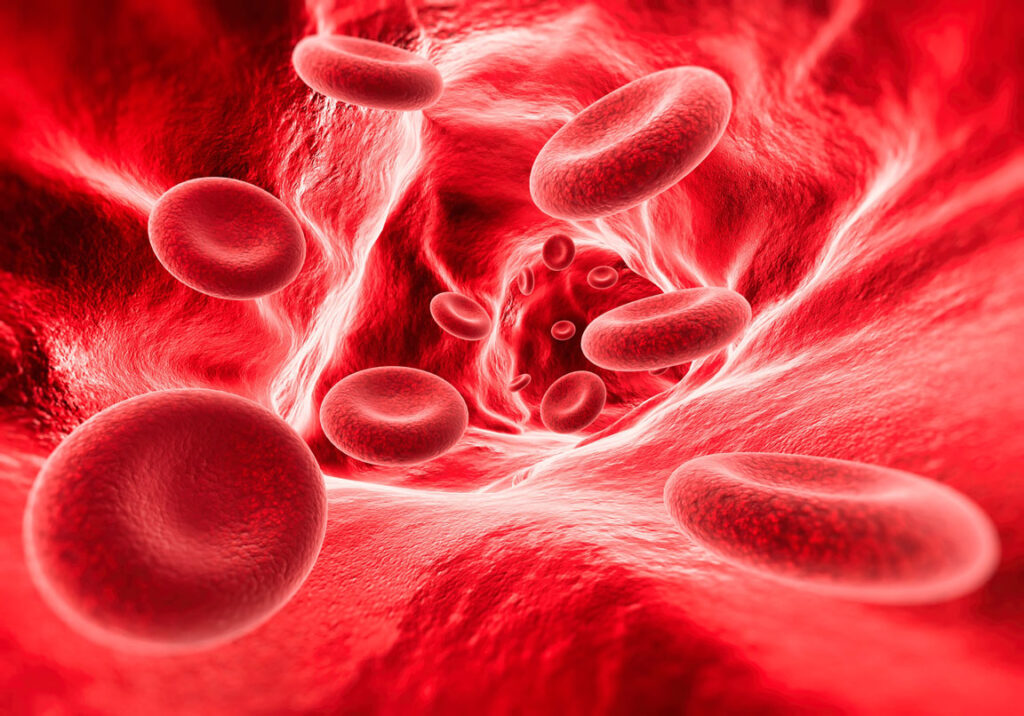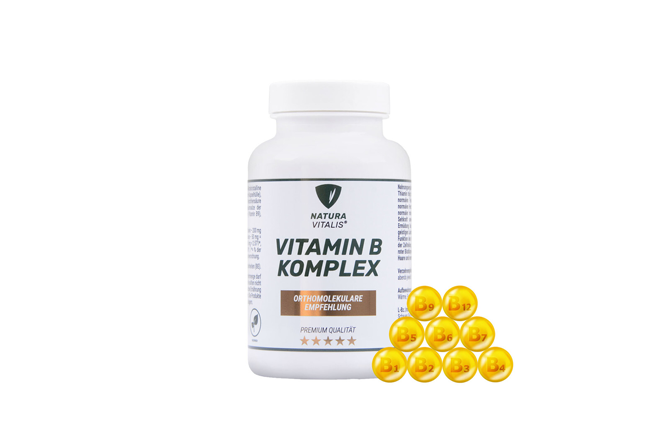Homocysteine is an amino acid produced in the body when methionine, an important amino acid found in many protein-rich foods, is broken down. Elevated homocysteine levels (hyperhomocysteinemia) are a serious health concern as they have been linked to a number of diseases, particularly cardiovascular disease, strokes and neurodegenerative diseases such as Alzheimer's. Fortunately, there are several natural ways to lower homocysteine levels and thus reduce the risk of these diseases.
Why are high homocysteine levels harmful?
A high homocysteine level in the blood can lead to damage to the blood vessels, as homocysteine has a toxic effect on the endothelial tissue (the inner lining of the blood vessels). This damage promotes the formation of plaques in the arteries, which can restrict blood flow and increase the risk of arteriosclerosis (hardening of the arteries). This in turn can lead to serious health problems such as heart attacks, strokes or thrombosis.
In addition to cardiovascular disease, homocysteine is also associated with a number of other health problems. These include neurodegenerative diseases such as Alzheimer's and Parkinson's, as high homocysteine levels in the brain have a neurotoxic effect and can lead to cell damage. There is also evidence that high homocysteine levels can be linked to osteoporosis, depression and even hair loss. During pregnancy, high homocysteine levels can increase the risk of miscarriage or premature birth.

How can you lower homocysteine naturally?
There are various natural ways to reduce homocysteine levels by taking in certain nutrients that are involved in the breakdown of homocysteine. The most important vitamins that support the breakdown of homocysteine are folic acid, vitamin B12 and vitamin B6. A healthy lifestyle also plays an important role in regulating homocysteine levels.
1. folic acid and vitamin B12
Folic acid and vitamin B12 are the most important vitamins involved in the conversion of homocysteine into harmless substances. A deficiency of these vitamins can result in the body not being able to break down homocysteine efficiently, which increases the level in the blood.
Folic acid, also known as vitamin B9, is found in large quantities in green leafy vegetables such as spinach, chard and broccoli, as well as in pulses, nuts and wholegrain products. Vitamin B12, which is mainly found in animal products such as fish, meat, eggs and dairy products, also plays a key role in the breakdown of homocysteine.
If the intake of these two vitamins through food is insufficient, dietary supplements can help to compensate for the deficiencies and reduce homocysteine levels.
2. vitamin B6
Vitamin B6 is another important vitamin that is involved in the conversion of homocysteine into other amino acids. It supports the activity of enzymes that promote the breakdown of homocysteine. A vitamin B6 deficiency can also lead to increased homocysteine levels. Good sources of vitamin B6 are poultry, fish, potatoes, wholegrain products, bananas and green vegetables.
3. regular exercise
Physical activity is not only important for general well-being, but also has a direct influence on homocysteine levels. Studies have shown that regular exercise can lower homocysteine levels. Moderate endurance exercises such as running, swimming or cycling promote blood circulation and can stabilize homocysteine levels. It is recommended to integrate at least 30 minutes of moderate exercise into your daily routine most days of the week.
4. stress reduction
Chronic stress is another factor that can lead to increased homocysteine levels. Long-term stress increases the production of stress hormones such as cortisol, which in turn can stimulate homocysteine production in the body. Relaxation exercises such as meditation, yoga or breathing exercises help to reduce stress levels and regulate homocysteine levels.
5. avoid smoking and alcohol in moderation
Smoking and excessive alcohol consumption are also associated with increased homocysteine levels. Smoking damages the endothelial tissue of blood vessels and promotes the development of arteriosclerosis, while alcohol in high quantities can also negatively affect homocysteine levels. Reducing or avoiding these factors can help to lower homocysteine levels and promote overall heart health.
6. antioxidants and omega-3 fatty acids
Antioxidants, which are found in many types of fruit and vegetables, protect the body from oxidative stress, which can hinder homocysteine breakdown processes in the body. Vitamin C and E in particular have antioxidant properties that can help to stabilize homocysteine levels. Omega-3 fatty acids, which are mainly found in fatty fish such as salmon, mackerel and sardines, also support the health of blood vessels and help to reduce homocysteine levels.

Stay healthy through natural methods
High homocysteine levels are a risk factor for many serious diseases, including cardiovascular disease, stroke and neurodegenerative diseases. The good news is that you can lower homocysteine levels naturally by eating a balanced diet rich in folic acid, vitamin B12, vitamin B6 and other important nutrients. Regular exercise, stress reduction and avoiding harmful habits such as smoking and excessive alcohol consumption also play an important role in regulating homocysteine levels and thus minimizing the risk of serious illness.

